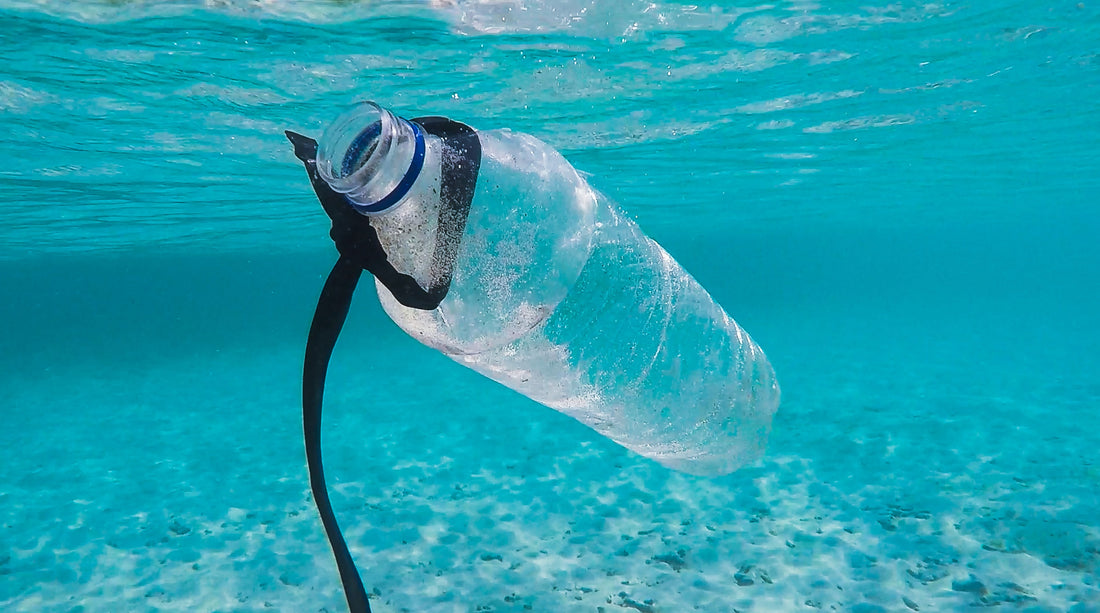Our ocean is the earth’s most valuable natural resource with over a million species calling it home. Our ocean alone contributes to the weather we experience, how clean our air is, and provides a balanced ecosystem for the planet we share. Unfortunately, plastic pollution is poisoning our precious ocean and bombarding our marine life, from our fish to seabirds, turtles, and microscopic algae.
35 billion plastic bottles get thrown away a year. Plastic alone is estimated to take hundreds of years to decompose, making it a large threat to our ocean’s ecosystems and life on earth. This overabundance of plastic pollution has a variety of consequences, ranging from global warming to an excess of nitrogen and phosphorus. Fish and other forms of life inhabiting the ocean die off because their environment becomes toxic and depleted of oxygen. Not only does plastic pollution contribute to the rising extinction rates, but can poison humans as well. The chemicals that are released when plastic decomposes accumulates, or builds up, in seafood that humans catch and eat every day. Coastal pollution contaminates all types of fish and shellfish that industries rely on.
The team at Montauk Tackle takes these growing concerns seriously, and we are working hard to avoid contributing to the devastation of plastic pollution by incorporating sustainable solutions into the fabrics we use. We have partnered with an American textile company that turns recycled plastic water bottles into the fabrics we use for our performance apparel. The production process for our yarn is extensive, but worth all the benefits. The recycled plastic bottles are first collected, sorted, washed, and then chopped into flakes. The plastic flakes are then blended, and turned into pre-recycled chips and loaded into large silos. Then the plastic chips enter the extrusion and texturing process, turning them into fibers. We then infuse our performance properties directly into our new recycled fibers, including antimicrobial, wicking, soil release, and 50+ UPF technologies.
According to Ocean Unite, nearly 80% of marine plastic pollution originates from land-based sources. Although we cannot reverse the damage that’s been done, we can improve plastic pollution rates and save our species from changing day-to-day habits, supporting environmental organizations, advocating awareness, and pushing our governments to address this global issue. Reducing personal plastic use by replacing your plastic home goods with sustainable materials such as stainless steel and glass, and using sustainable materials like our recycled performance fabrics are also great ways to contribute to improving plastic pollution. Together, we can protect our planet from plastic pollution.

